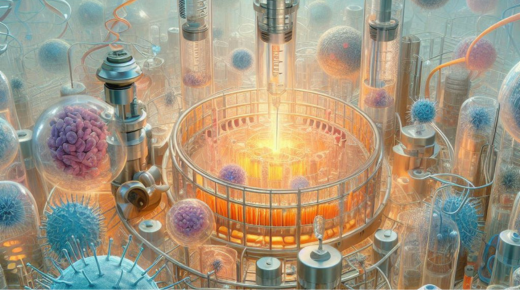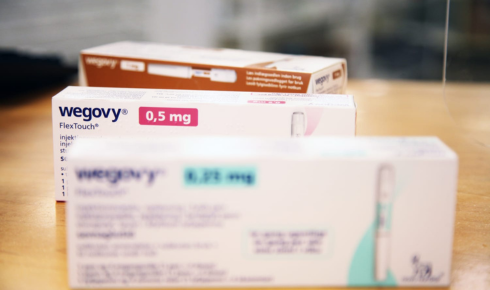Recombinant antibody production is a groundbreaking innovation in the field of biotechnology. This technology has revolutionized therapeutic treatments, diagnostics, and research applications. Antibodies, vital for targeting specific antigens, are now produced through engineered processes that involve recombinant antibody production, enabling faster, more efficient, and highly specific results. One of the primary systems used for this production is the mammalian cell, particularly the CHO cell (Chinese Hamster Ovary cell), which has become the gold standard for protein expression. This article delves into the critical aspects of mammalian expression systems and antibody expression, providing insights into the advantages, challenges, and applications in modern medicine.
What is a Recombinant Antibody?
A recombinant antibody is a type of antibody that is produced through genetic engineering techniques. Unlike traditional methods of antibody production, which rely on hybridoma technology, recombinant antibodies are created by inserting the genes encoding the desired antibody into a host system, such as a mammalian cell. This method allows for the production of highly specific antibodies that can be tailored to target particular antigens with great precision.
The key benefit of recombinant antibodies is that they are more consistent and reliable than those produced by conventional means. The ability to manipulate their genetic sequence allows researchers to create antibodies with improved affinity, stability, and reduced immunogenicity, making them ideal for therapeutic use.
Mammalian Cell Systems in Recombinant Antibody Production
The most widely used system for producing recombinant antibodies is the mammalian cell system. These cells, particularly CHO cells, are chosen for their ability to perform post-translational modifications, such as glycosylation, which are essential for the proper folding and function of complex proteins like antibodies.
Why Use Mammalian Cells?
Mammalian cells, unlike bacterial or yeast systems, can produce proteins that are nearly identical to those found in humans. This is crucial when producing therapeutic antibodies, as human-like glycosylation patterns are often required for efficacy and to reduce the risk of adverse immune reactions. The following are the primary advantages of using mammalian cells:
- Post-Translational Modifications: Mammalian cells can add sugars to proteins in a process called glycosylation, which is necessary for the stability and function of many therapeutic proteins.
- Folding and Assembly: Proper folding and assembly of complex proteins like antibodies occur more efficiently in mammalian cells, ensuring functional activity.
- Biological Relevance: Proteins produced in mammalian cells are more likely to mimic their natural human counterparts, making them safer and more effective for therapeutic applications.
CHO Cells: The Gold Standard in Antibody Production
Among mammalian systems, CHO cells have emerged as the most commonly used for recombinant protein production. CHO cells offer several advantages that make them ideal for large-scale antibody production:
- High Yield: CHO cells are capable of producing high amounts of recombinant proteins, making them ideal for commercial production.
- Adaptability: They can be easily adapted to grow in suspension cultures, which are suitable for large-scale production in bioreactors.
- Scalability: CHO cells are well-suited for scale-up, allowing for the production of therapeutic antibodies on an industrial scale.
- Regulatory Approval: Proteins and antibodies produced in CHO cells have a long history of regulatory approval, making it easier to navigate the clinical and regulatory processes.
Protein Expression in Mammalian Systems
Protein expression in mammalian systems involves the insertion of a gene encoding the desired antibody into the host cell’s DNA. Once inside the cell, the gene is transcribed into messenger RNA (mRNA), which is then translated into a protein (the antibody). The protein undergoes post-translational modifications to ensure proper folding, stability, and functionality.
The Process of Mammalian Expression
- Gene Cloning: The first step in mammalian expression is to clone the gene of interest into a plasmid, a small DNA molecule that can replicate independently.
- Transfection: The plasmid is then introduced into the mammalian cell, such as a CHO cell, through a process called transfection. Several transfection methods exist, including chemical, physical, and viral methods.
- Protein Production: Once the gene is inside the cell, it is transcribed into mRNA, which is then translated into the protein. The cells are cultured, and as they grow, they produce the recombinant antibody.
- Purification: After sufficient amounts of the protein have been produced, it is purified from the culture medium. This involves several steps, including filtration and chromatography, to ensure the final product is pure and free of contaminants.
Applications of Antibody Expression
The ability to produce antibodies through antibody expression in mammalian cells has led to significant advancements in several fields, including:
- Therapeutic Antibodies: Recombinant antibodies are now commonly used in the treatment of diseases such as cancer, autoimmune disorders, and infectious diseases. Drugs like Rituximab and Trastuzumab, which are used to treat certain cancers, are examples of therapeutic antibodies produced in CHO cells.
- Diagnostics: Recombinant antibodies are also used in diagnostic tests to detect diseases or conditions in patients. These antibodies can be designed to specifically bind to markers of disease, allowing for early detection and treatment.
- Research: In scientific research, recombinant antibodies are used as tools to study cellular processes, protein interactions, and disease mechanisms. The precision with which these antibodies can be engineered makes them invaluable in laboratory settings.
Challenges in Recombinant Antibody Production
While the use of mammalian cells in antibody production offers many advantages, there are also challenges to consider:
- Cost: Mammalian systems are more expensive to operate than bacterial or yeast systems. The need for specialized growth media and equipment increases production costs.
- Time-Consuming: The production process in mammalian cells is slower compared to other systems, often taking weeks or months to achieve sufficient yields.
- Complexity: The complexity of mammalian cells can lead to variability in protein production, requiring careful monitoring and optimization of culture conditions.
Conclusion
The use of recombinant antibody production through mammalian cell systems like CHO cells has revolutionized modern medicine, offering tailored therapeutic solutions and advancing research capabilities. The process of protein expression and antibody expression in mammalian systems provides the precision and biological relevance necessary for producing safe and effective antibodies. Despite the challenges, the advantages of using mammalian cells far outweigh the difficulties, making them the preferred choice for producing high-quality recombinant antibodies in the pharmaceutical and biotechnology industries.





